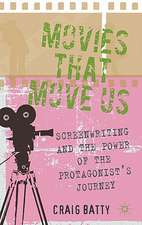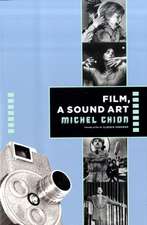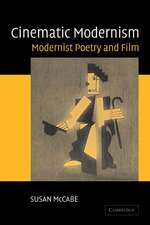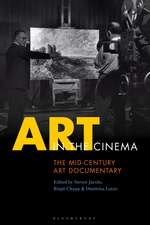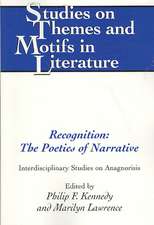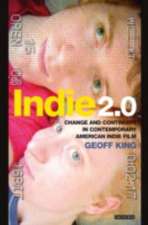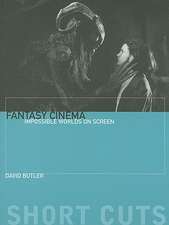How the Movies Got a Past: A Historiography of American Cinema, 1894-1930
Autor Dimitrios Latsisen Limba Engleză Hardback – 22 sep 2023
Preț: 447.33 lei
Preț vechi: 614.68 lei
-27% Nou
Puncte Express: 671
Preț estimativ în valută:
85.62€ • 93.04$ • 71.97£
85.62€ • 93.04$ • 71.97£
Carte disponibilă
Livrare economică 20-26 martie
Preluare comenzi: 021 569.72.76
Specificații
ISBN-13: 9780197689271
ISBN-10: 0197689272
Pagini: 408
Ilustrații: 50 b/w images
Dimensiuni: 163 x 242 x 26 mm
Greutate: 0.71 kg
Editura: Oxford University Press
Colecția OUP USA
Locul publicării:New York, United States
ISBN-10: 0197689272
Pagini: 408
Ilustrații: 50 b/w images
Dimensiuni: 163 x 242 x 26 mm
Greutate: 0.71 kg
Editura: Oxford University Press
Colecția OUP USA
Locul publicării:New York, United States
Recenzii
This important book transforms our understanding of the history of early cinema by expanding on the limited range of material that past studies have drawn upon. Supported by extensive research, Latsis creates a lucid study supported by a wide range of sources, including industry self studies.
How the Movies Got a Past fills a gap in media studies, which is the lack of any systematic account of histories of film in the first decades of cinema. Latsis presents an abundant range of source material and augments his empirical research with astute analyses in an accessible and engaging manner.
Dimitrios Latsis's groundbreaking historiography excavates a rich discourse on film history practically going back to the birth of cinema itself. It constitutes an important pre history of today's film studies in their attempts to frame the new medium as a legitimate art, entertainment, and industry. This book should be required reading for anyone seriously interested in American film history.
This book is a superb, deeply researched study of often dismissed early writings, from Grau to Ramsaye, bent on creating a history of cinema during its very emergence, but especially of little examined practices that likewise sought to construct a sense of cinema's 'usable past'-from commercial non fiction films, revivals or re-releases, and studio commemorations to public exhibitions, university curricula, and the efforts of private collectors.
The book explores the stuff that those interested in doing media archaeology would find extremely useful, but it is not a work of media archaeology itself.
How the Movies Got a Past fills a gap in media studies, which is the lack of any systematic account of histories of film in the first decades of cinema. Latsis presents an abundant range of source material and augments his empirical research with astute analyses in an accessible and engaging manner.
Dimitrios Latsis's groundbreaking historiography excavates a rich discourse on film history practically going back to the birth of cinema itself. It constitutes an important pre history of today's film studies in their attempts to frame the new medium as a legitimate art, entertainment, and industry. This book should be required reading for anyone seriously interested in American film history.
This book is a superb, deeply researched study of often dismissed early writings, from Grau to Ramsaye, bent on creating a history of cinema during its very emergence, but especially of little examined practices that likewise sought to construct a sense of cinema's 'usable past'-from commercial non fiction films, revivals or re-releases, and studio commemorations to public exhibitions, university curricula, and the efforts of private collectors.
The book explores the stuff that those interested in doing media archaeology would find extremely useful, but it is not a work of media archaeology itself.
Notă biografică
Dimitrios Latsis is a historian and digital humanist working at the intersection of archiving and visual culture. He is Assistant Professor in Digital and Audiovisual Preservation at the University of Alabama's School of Library and Information Studies. His work on American visual culture, early cinema, archival studies, and the Digital Humanities has been supported by the Smithsonian Institution, Domitor, Mellon, and Knight Foundations, and Canada's Social Studies and Humanities Research Council, among others. He is the co-editor of Art in the Cinema: The Mid-Century Art Documentary (2020) with Steven Jacobs and Birgit Cleppe.




